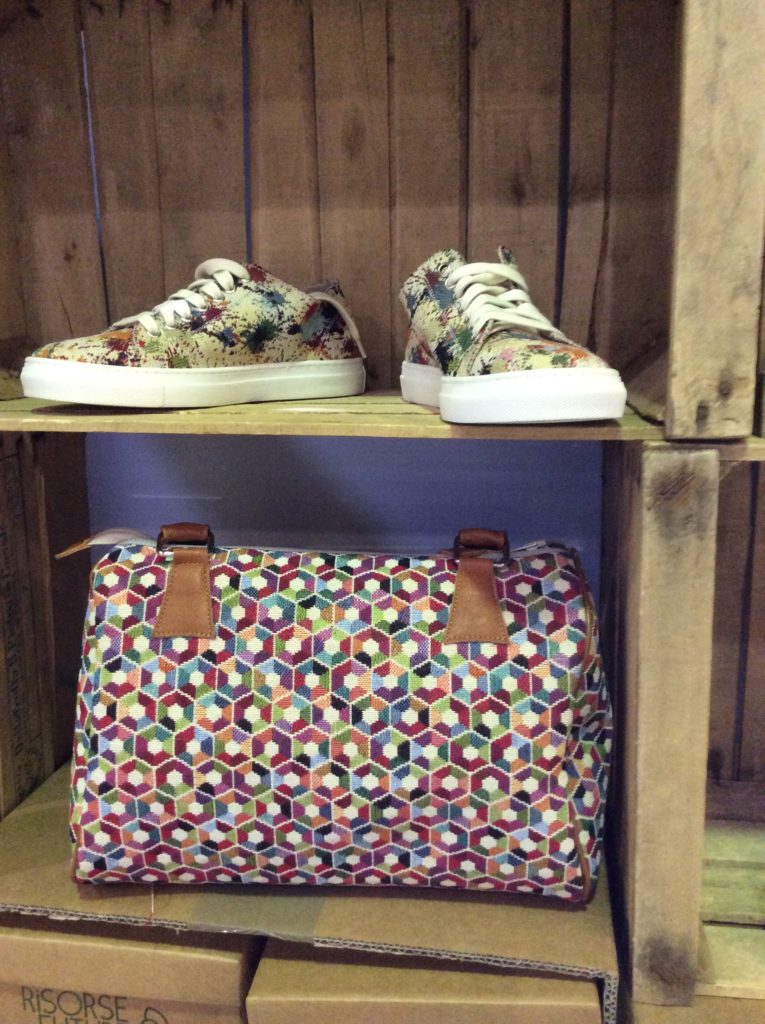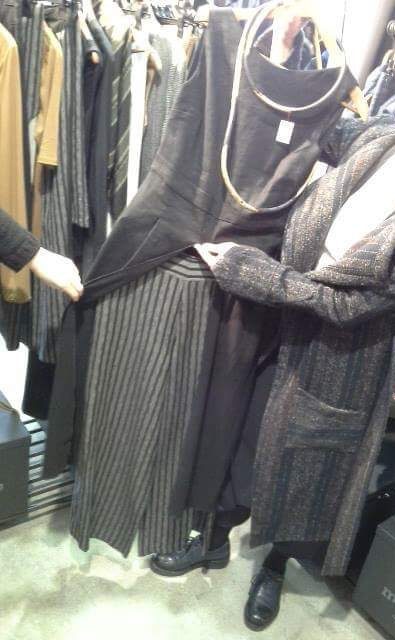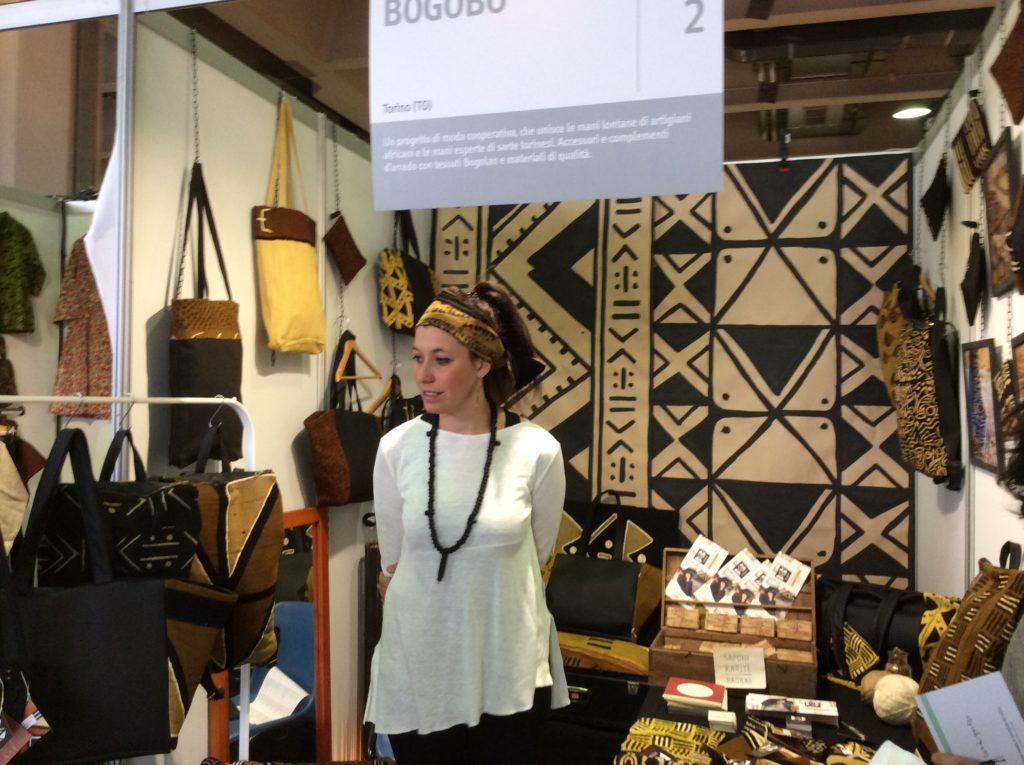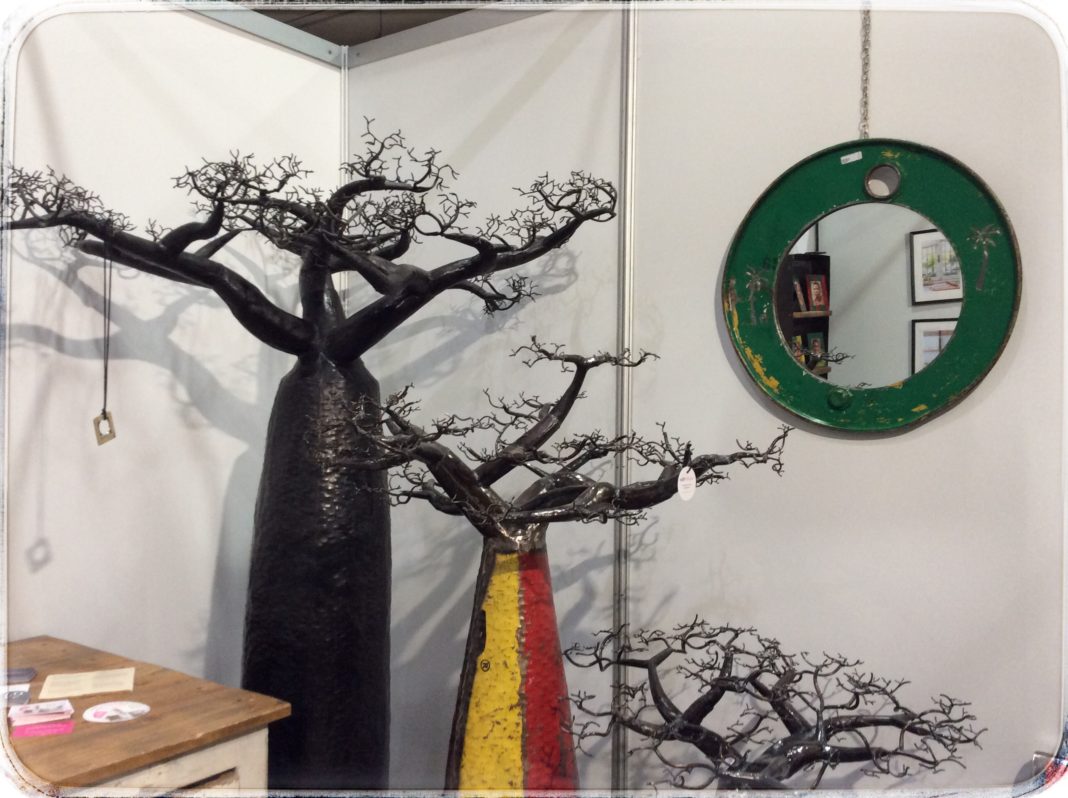FieraMilanoCity. We wonder what a fair these days it is for, as if we did not already show enough. Organizing one has undoubtedly its economic advantages, but going to visit it? Why? We wondered about that, too. And we have some answers. Those who gave us the ‘Critical Fashion’ show inside ‘Fa’ la cosa giusta!‘, the Italian fair of sustainable lifestyles, in two frantic days in which we received confirmation and in which we shook hands and read eyes, along with the wefts of the many materials seen and touched.
We could be staying here to list numbers, for example 30% more visitors, perhaps thanks to the free entry scheduled for the fifteenth birthday of the fair. Instead we prefer to say that who seeks finds. As in an old wardrobe we pulled out rags to throw away but also that adorable little dress with which we could do something, because we like it too much to give it away. Maybe we could recover it.

Just like Irene Elena, the young Modenese owner of Random, a small artisan workshop that combines ethical fashion with the quality of tailoring, saving, discomposing and reassembling used clothes. And not so by chance but after a long incubation and design stage. “Upcycling – Irene explains – does not mean recycling, people do not have to believe that this term means to readjust and adapt, but to give new life to the used one with that extra something and of greater value. Fit goes hand in hand with originality“. This is the small thought’s revolution that animates the young entrepreneur: sustainability rhymes with quality and also humanity because, adds Irene, “we are human beings, not machines and working with passion we give a particular energy to the products, we give a little bit of us “.


But ethics and handmade do not always mean profit. Because yes, eco-fashion attracts a lot of people who like prying but who are not always able to recognize the value of a product made by hand or recovered. Stands, like small niches inside a cathedral, are visited by loyalists of the green philosophy and by new adepts who caress the creations as relics. Enraptured by lightness, softness and originality, they sometimes back off at the price, as if it were an exaggeration.
The profit is a great obstacle for many emerging companies, but not for those established. This is the case of Risorse Future, the Marches footwear brand that, due to the crisis, has converted the entire company, accepting a new challenge after 65 years of activity and becoming a 100% vegan certified footwear brand. Ten years ago they were the first to present the biodegradable Italian shoe and today, strong in experience and scientific research, they do not stop innovating. “In the day, when the shoes were made of leather, we produced 2500 pairs a day, today 4500 a year – they tell us at the stand – but we don’t regret it at all, quite the contrary. We are also working on a new material that we can not wait to present”.


Most of the exhibitors we met, however, work handcrafted and are growing, which means working hard and investing even more. And not only on an economic level, the commitment is above all personal. The back pains are being felt and it becomes increasingly difficult to stay at the loom for Laura Rovida, who wanted to study philosophy and then chose to become a weaver, that means also a bit ‘philosophizing’. The owner of the textile design studio and self-production of accessories, clothing and interior design Rovida Design is the owner of the only wooden handloom throughout the Maremma, where she lives, loom taken in Finland, where she went to learn the art of weaving: “It is a nation that has a strong tradition in this sense – Laura tells us – a form of craftsmanship that in Italy has unfortunately been almost completely lost“.


It takes three weeks to make ten shirts, but for her it is not a problem, rather the opposite because it is a lifestyle, like getting up in the morning watching the flamingos on the lake, to which she has dedicated a small collection printed with natural colors. “I’m not here for marketing, but to look for clients, passionate people like me with whom to share values and establish a human relationship and why not even friendship” – concludes Laura.


Loyalty is the other password along with personalization, ‘printed’ in the eyes of those who believe in sustainability. Said with an oxymoron: tailored prêt-à-porter. As they explain to us at the Moodìa stand, subtitled ‘Sartorial Humor’, Lazio tailoring that defines their clothes cuddles and tantrum, wearable in various combinations depending on the mood. The latest collection, conceived by the designer Manuela Orsucci, is inspired by Modigliani for its minimal and defined lines, such as those of striped gray and black trousers, wide and wraparound, to be worn under a long dress with a deep central slit or to be combined with a fitted top. “We sell online but we want our customers to enter the site as if they were entering a virtual atelier, so we keep contact as immediate and constant as possible, so as to try to satisfy every request” the women of Moodìa tell us.


Then the exotic of distant countries could not miss, here in a social, supportive but also innovative way. Africa is among the preferred partners of small independent cooperatives and no longer speaks only through stereotypes but through skills, workmanship and quality raw materials, the result of tradition and the enhancement of the territory. The wild silk woven by Malagasy artisans, who have faces and names, is the basis of the latest collection of Esthéthique, the ethical fair trade brand born from the project of Materia Critica, design and communication studio formed by three young people from Emilia, who have set up a cooperative active for thirty years in the supportive world. “We decided to combine something innovative and fashion with the most traditional part, trying to enhance the local master craftsmanship – Martina and Naomi tell us – for now we produce small design accessories, the wild silk scarves are our flagship. These are pieces of sixteen different colors, all those that could be dyed in the field in a natural way, but we have many other innovations in mind “.
The ‘bogolano’ fabric of Burkina Faso instead intertwines the destinies of small producers of this Country to those of the inmates who work at the Il Gelso Turin social tailoring, thanks to the wandering spirit of Elena La Rovere, who right there was struck by a particular technique of weaving and by its maker, Ibrahim, who still supplies the co-operative’s seamstresses. “I liked the idea of materializing the bond that has always united Turin with that distant land, leaving the two realities to become contaminated” – Elena explains. This is how Bogobo was born, a line of bags and accessories, all strictly ethical and organic, color of sand and ebony, born in Africa and grown in Piedmont. A line destined to grow due to the enthusiasm of the young businesswoman.


An enthusiasm that has contaminated us, the same that brings everything back to a starting point: people and stories that make projects and objects created alive. They and also us of eco-à-porter, which share the same ideals and allow ourselves to dream and believe in change. This is what fairs are for. To remind us that the revolutions start from the bottom. Step by step.
We have begun. So follow us.
Novella Di Paolo


![Mono[PA6] by Freitag, a prova di economia circolare](https://eco-a-porter.com/wp-content/uploads/2024/05/freitag_monopa6_hero_master_16zu9_fin_01.2_0-218x150.jpg)













